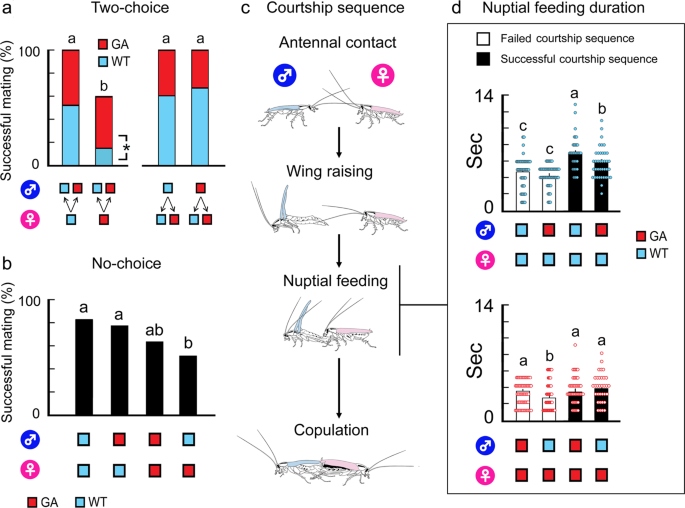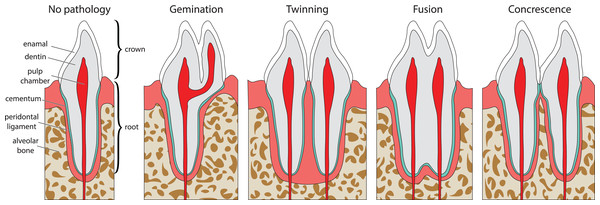2022-05-12 ノースカロライナ州立大学(NCState)
この研究では、ブドウ糖嫌悪症がゴキブリの求愛行動にどのような影響を与えるかを確認するため、さまざまな実験を行った。その結果、ブドウ糖を嫌うメスは、ブドウ糖を嫌うために餌を中断することが多く、特にブドウ糖を嫌うことのない野生型のオスから餌をもらうと、より頻繁に中断することがわかった。また、ブドウ糖を嫌うオスは、分泌物中のマルトトリオース濃度が高いことが多く、このマルトトリオースはブドウ糖に変換されにくいため、オスが交尾を開始するまでの時間が長くなることがわかった。
研究チームはまた、オスの分泌物の質を変え、グルコースとマルトースの分泌物の代わりにフルクトースを使用した。ブドウ糖を嫌うメスは果糖を好み、より長く餌を食べ、結果として交尾をより成功させることができた。
<関連情報>
- https://news.ncsu.edu/2022/05/sugar-aversion-hampers-cockroach-coupling/
- https://www.nature.com/articles/s42003-022-03415-8
適応的な味覚多型の急速な進化が求愛行動を混乱させる Rapid evolution of an adaptive taste polymorphism disrupts courtship behavior
Ayako Wada-Katsumata,Eduardo Hatano,Samantha McPherson,Jules Silverman & Coby Schal
Nature Communications Biology Published: 12 May 2022
DOI:https://doi.org/10.1038/s42003-022-03415-8

Abstract
The evolution of adaptive behavior often requires changes in sensory systems. However, rapid adaptive changes in sensory traits can adversely affect other fitness-related behaviors. In the German cockroach, a gustatory polymorphism, ‘glucose-aversion (GA)’, supports greater survivorship under selection with glucose-containing insecticide baits and promotes the evolution of behavioral resistance. Yet, sugars are prominent components of the male’s nuptial gift and play an essential role in courtship. Behavioral and chemical analyses revealed that the saliva of GA females rapidly degrades nuptial gift sugars into glucose, and the inversion of a tasty nuptial gift to an aversive stimulus often causes GA females to reject courting males. Thus, the rapid emergence of an adaptive change in the gustatory system supports foraging, but it interferes with courtship. The trade-off between natural and sexual selection under human-imposed selection can lead to directional selection on courtship behavior that favors the GA genotype.

